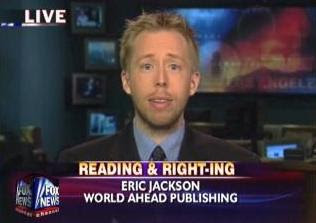The secret game of book embargoes
For books other than Harry Potter, embargoes usually go something like this: 1) Publisher declares a book top secret until a certain date. 2) A media outlet "breaks" the story on the book before that certain date. 3) Other media outlets report on the media outlet that "broke" the story. And 4) Bookstores start selling the book whenever they please.
The article implies that the media blame publishers for this process:
Many journalists complain that publishers also use embargoes to manipulate the press in more devious ways. Almost every critic interviewed for this article had a story about either getting around an embargo with a publicist's consent or being barred by a publisher's non-disclosure agreement from sharing a book with their publication's newsroom.Authors and their agents, however, seem to blame the media:
"The irony is that it's journalists who are encouraging the embargos," says literary agent Chris Calhoun, who represents Pakistan's Musharraf. According to [Bob] Woodward, that's nothing new. "If The Post has a scoop, they put it out in the newspaper," he says. "That's embargoed, effectively. Maybe it's ready on a Monday, and they wait to run it on a Thursday."

(Don't worry, it's not you -- I've read that Woodward quote a dozen times and it doesn't make sense. And it's in his own paper, mind you.) The "great dumb shark" goes on to add:
He had State of Denial embargoed, he says, to ensure that the book's contents were presented "coherently."
Sure, that's the real reason Woodward had the book embargoed. And this guy thinks Bush is in a state of denial?
The bottom line on embargoes is that big publishers, famous authors, and the major media all see the benefit of playing a game of trying to turns books into a quasi-news story by restricting their availability. It's only retailers who frequently do not go along because their incentive is to get inventory out on store shelves, which is exactly what simple game theory would predict.
The entire practice of embargoes is odd -- and virtually non-enforcable unless you're a publishing conglomerate. But it's not likely to go away as long it provides media outlets with the opportunity to manufacture news about themselves.
Labels: harry potter, publishing


0 Comments:
Post a Comment
<< Home